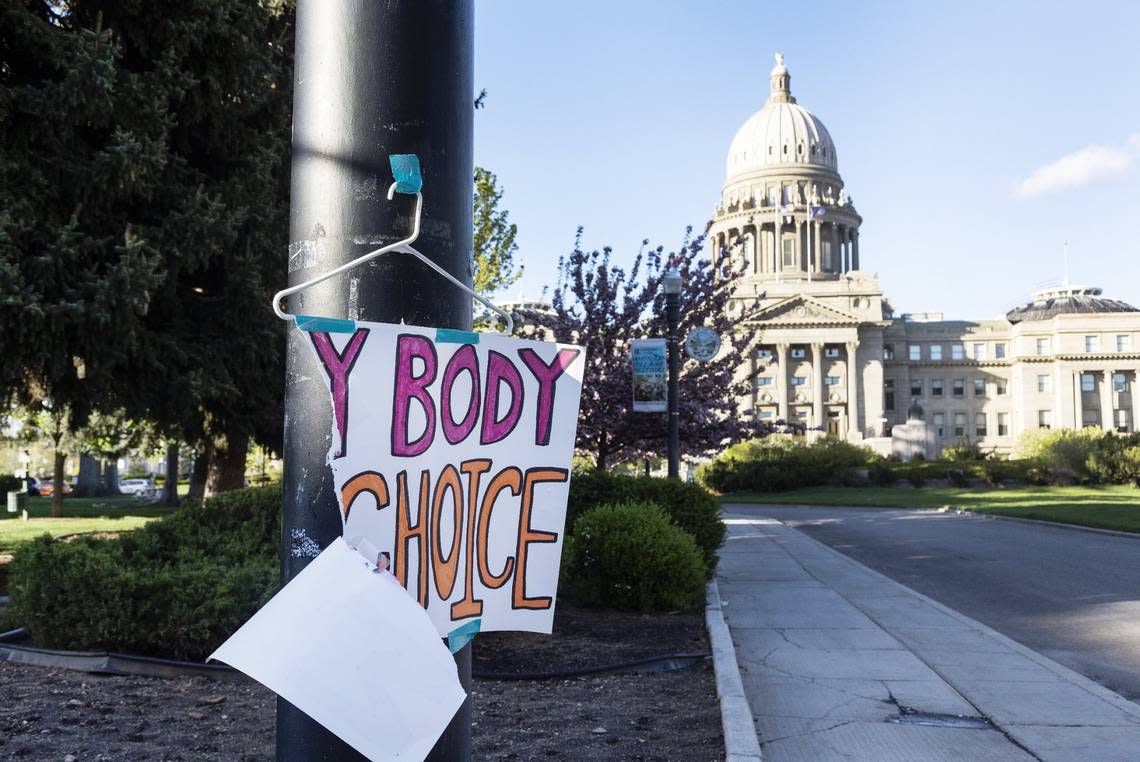U.S. Supreme Court lets Idaho’s ER abortion ban stand for now. Here’s what comes next

The U.S. Supreme Court on Friday quietly issued an order allowing Idaho to enforce its strict abortion ban even in emergency medical situations, undoing an injunction that allowed ER doctors to perform abortions without risk of criminal prosecution.
The case dates back to August 2022, when the U.S. Department of Justice sued Idaho on the grounds that the state’s abortion ban — which makes abortion legal only when a pregnant person is at risk of death or in cases of rape or incest that have been reported to police — violates the federal Emergency Treatment and Active Labor Act (EMTALA).
Under EMTALA, emergency physicians may perform abortions when a pregnant person’s health is threatened. With the case on hold, physicians who perform abortions not deemed exempt under Idaho’s stringent law face as much as five years in prison.
Democrats and reproductive rights organizations condemned the court’s order.
“Idaho’s abortion ban ... endangers the lives of pregnant Idahoans and undermines the duty hospitals have to treat and stabilize sick patients,” Idaho Democratic Party Chair Lauren Necochea said. “Simply preserving the patient’s health is considered a criminal act. It is unconscionable that the U.S. Supreme Court is now allowing Idaho to block abortion care even in medical emergencies.”
Rebecca Gibron, CEO of Planned Parenthood Great Northwest Hawaii, Alaska, Indiana, Kentucky, said in a news release that Idaho lawmakers are “willfully ignoring” the potential impacts of the law, which could put people in “grave danger during their pregnancy.”
As the case has worked its way through the court system, officials have paused and resumed the Idaho abortion ban multiple times. Idaho Attorney General Raúl Labrador in November asked the U.S. Supreme Court to weigh in on the issue after the 9th Circuit Court of Appeals doubled back on the issue.
Labrador’s office Wednesday nudged the conservative-dominated high court, which had not acknowledged the issue since his initial request late last year. The Law Dork news website reported that Acting Solicitor General Joshua Turner sent the court the 5th Circuit Court of Appeals’ Jan. 2 ruling on a similar case in Texas. The 5th Circuit ruled that EMTALA does not apply to abortions.
“We are very pleased and encouraged by the Supreme Court’s decision today. The federal government has been wrong from day one. ... Today, the Supreme Court’s decision is a big step in stopping the administration’s lawless overreach,” Labrador said in a statement Friday night.
The unsigned Supreme Court order said little else on the case, but arguments are being scheduled for April in Washington, D.C.

